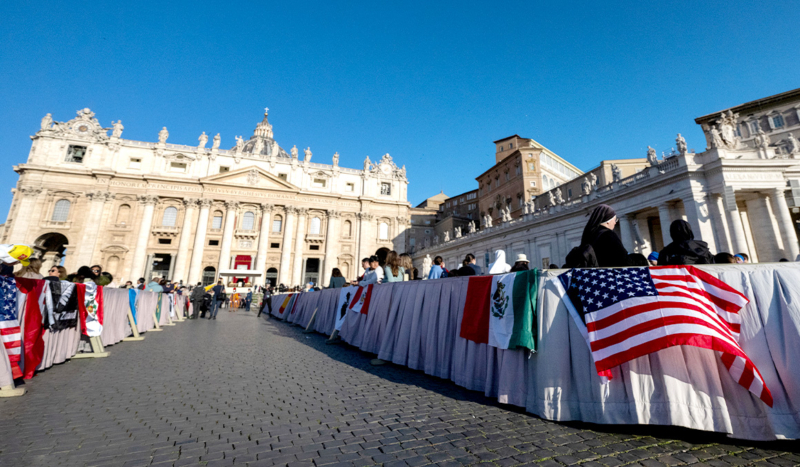
Catholic Church England and Wales / Flickr
The majority of American Catholics have positive opinions of Pope Leo XIV, and many Americans have also said they hold favorable views of the first US-born pontiff, a recent AP-NORC Center for Public Affairs Research survey found.
AP News reported that 65% of American Catholics have “very” or “somewhat” favorable views of Pope Leo, with 29% saying they don’t know enough about him to have an opinion. Only 6% said they have a “very” or “somewhat” unfavorable opinion of him.
Forty-four percent of Americans overall said they have received favorable impressions of him, with 46% indicating that they don’t know enough to have an opinion and just 10% saying they have unfavorable opinions of him.
When broken down by party, Democrats overall hold the most favorable views of Pope Leo (48%), followed by Republicans (42%) and independents (39%). In each political party, between 40-50% say they don’t know enough about him to form an opinion.
The poll also found that Americans aged 60 and older, who are more likely to identify as Catholic, offer slightly more support for Pope Leo than Americans under 30 years old (about 50% vs. 40%). Despite the lower favorability ratings among younger adults, only about 10% in the younger demographic said they have an unfavorable view of Pope Leo.
AP News noted that the poll did not discover a notable partisan gap among Catholics on Pope Leo, adding that “Catholics across the ideological spectrum have expressed hope that Leo will be able to heal some of the divisions that emerged during the pontificate of his predecessor, Pope Francis.”
AP News pointed to Pope Leo’s repeated calls for peace and his criticism of nationalist political movements across the world as actions that encourage American Catholics as well as his hand in one of Pope Francis’ reforms that allowed women to serve in the Dicastery for Bishops and assist in the decision-making process for nominating bishops.
Catholics interviewed by AP News said they hope Pope Leo will promote Church doctrine in the US, especially its opposition to same-sex “marriage” and abortion, whereas others hope he will embrace women’s ordination and inclusivity.

